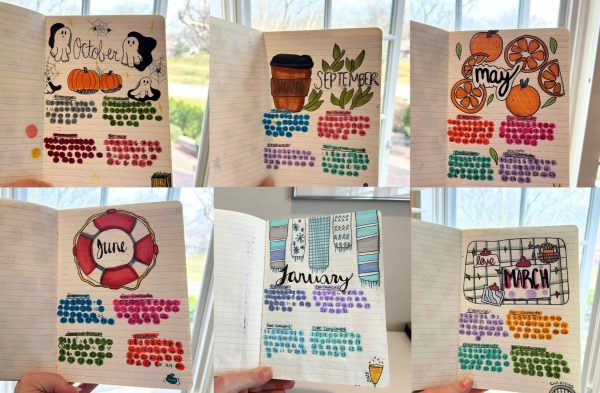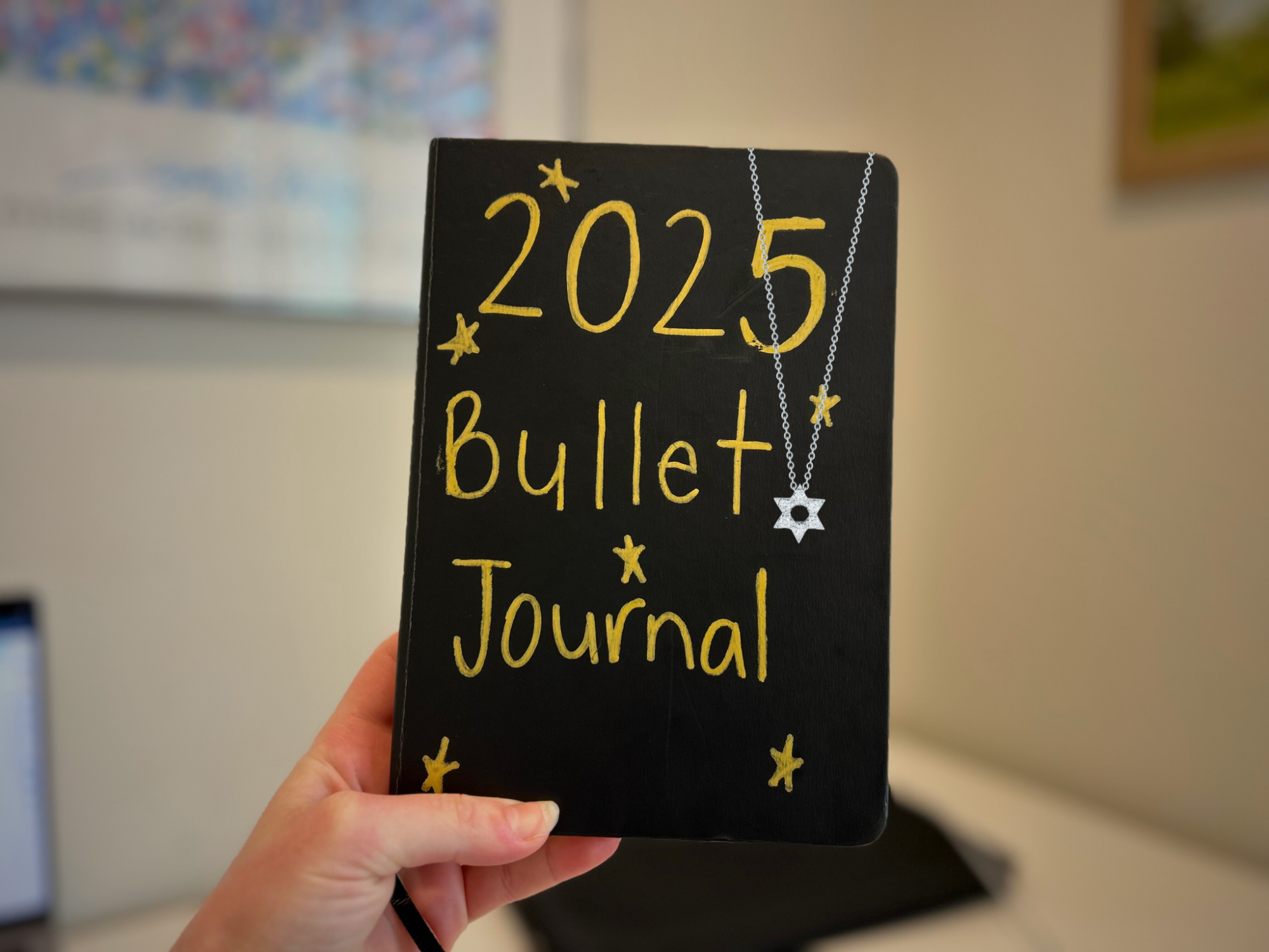Have you ever felt compelled to keep track of your feelings and habits? Well, you are certainly not the only one. Bullet journaling is a widely embraced method used to enhance organization, boost productivity, and address various mental challenges that may be weighing on an individual in a visually appealing and organized manner.
Unlike the typical planner, bullet journals offer a customizable approach, allowing individuals to design personalized spreads and layouts that cater to their unique needs. This practice serves a multifaceted role as an expressive tool, a memory tracker, or perhaps just a place to keep one’s thoughts organized.
Personally, I utilize my bullet journal as a tool for habit tracking. From monitoring daily water intake to evaluating my screen time, drawing out these trackers helps me feel productive due to their aesthetically pleasing nature, while also holding me accountable for maintaining healthy habits.
Every month, I modify my focus areas, rotating the tasks I prioritize to see how productive and successful I can be. By tracking elements such as exercise and emotional well-being, I am able to reflect on my day each day and recognize the progress I have made.

Among the various layouts I incorporate, my favorite is the “highlight of the day” spread, which remains constant each month. As a high school student, maintaining a positive mindset is crucial, particularly when faced with stress from school. Shifting one’s perspective and seeking a more positive outlook can have profound impacts on one’s mental well-being.
Another spread I have found particularly helpful is tracking my stress levels throughout the day, and ranking them on a number scale from one through ten. Noticing my stress patterns increasing on days when I have difficult tests is noteworthy because it allows me to reflect and attempt to restructure my outlook on days when I might have more on my plate.
One of the largest appeals of the bullet journaling hobby is the freedom that comes with it. HBHA junior Avital Mullokandova explained her bullet journaling routine when she said, “Each night before I’d go to sleep, I’d take the time to unwind by filling out and decorating my journal…I would play music while filling out each section to relieve myself from any stress the day brought me.”
The sense of relaxation the hobby can bring to people is sometimes all it takes to unwind after a long day. “It gave me a zen feeling,” said Mullokandova.
Bullet journaling is not only convenient for the creativity aspect but also for the memory component. When writing down little snippets and keeping track of what you do each day, you are able to reflect later on. Mullokandova said, “It [bullet journaling] was a fun way for me to not only have a vessel of relaxation but to also document my day for any future moment I decided to look back and reminisce about.”

In Judaism, there is a prominent theme of “organization” within the Torah that emphasizes structured laws and rituals, particularly evident in the detailed guidelines provided in the books of Shmot, Vayikra, and Bamidbar, which outline proper practices for worship, daily life, and community interactions. This creates a framework for living a Jewish life with clear rules and order.
Having the same tradition as our ancestors creates a sense of connection to our past, and this is all due to the tradition and consistency we have passed down through generations. Similar to a bullet journal, repetition is used in Judaism to generate habits and thanks.
Bullet journaling is more than just an organizational tool—it is a creative and personal way to track habits, reflect on daily experiences, and find peace in routine. Whether used for productivity, self-care, or simply as an artistic outlet, the flexibility and freedom of bullet journaling allows individuals to tailor it to their own needs.
Just as Judaism emphasizes structure and tradition to create meaningful connections, bullet journaling similarly fosters consistency and self-reflection. By incorporating this practice into daily life, individuals can cultivate mindfulness, celebrate small victories, and maintain a positive mindset even in the face of challenges.















